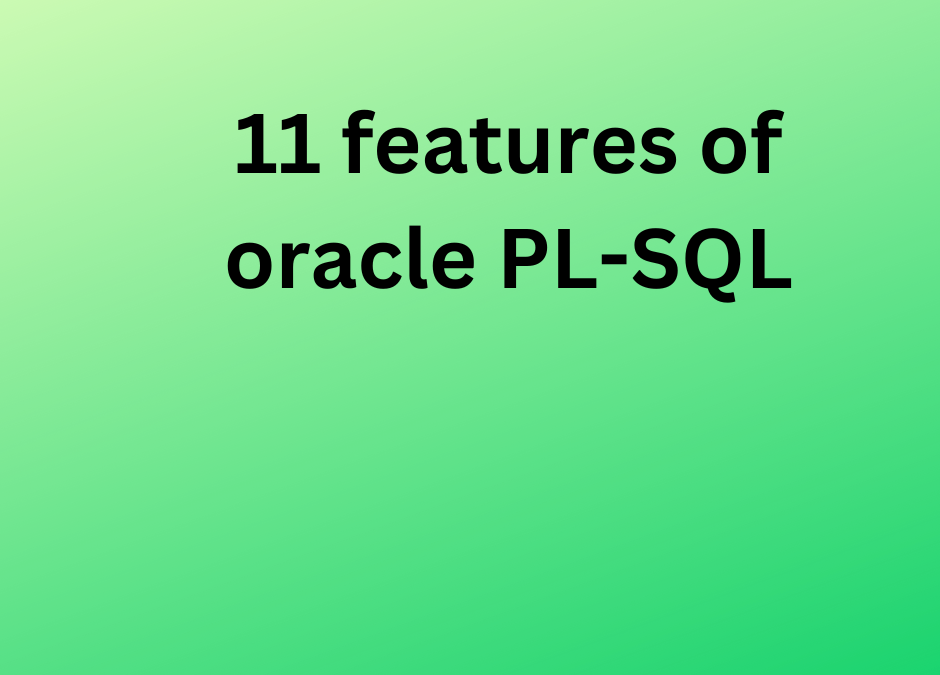Oracle PL/SQL (Procedural Language/Structured Query Language) is a powerful programming language used to develop applications and manage data within Oracle databases. Here are 11 key features of Oracle PL/SQL:
- Procedural Language: PL/SQL is a procedural language that allows you to write code blocks that can be executed sequentially, enabling you to create complex programs with loops, conditions, and exception handling.
- Tight Integration with SQL: PL/SQL seamlessly integrates with SQL, allowing you to embed SQL statements within your code. This enables you to manipulate data in the database using SQL queries and perform data manipulation tasks efficiently.
- Block Structure: PL/SQL code is organized into blocks, which are units of code that can be compiled and executed. Blocks can include declarations, executable statements, and exception handling sections.
- Variables and Constants: PL/SQL supports the declaration of variables and constants. Variables can store values that can be manipulated within the code, while constants hold values that remain constant throughout the program execution.
- Control Structures: PL/SQL provides various control structures such as loops (FOR, WHILE, and LOOP), conditional statements (IF-THEN-ELSE), and case statements (CASE). These structures allow you to control the flow of execution within your program.
Oracle is a computer software and hardware company. They are the world’s second largest software maker.we are providing best oracle training in coimbatore with new updated syllabus with 15 years experience facallty.
- Exception Handling: PL/SQL provides robust error handling mechanisms through its exception handling blocks. You can define exceptions and handle them appropriately to ensure your program handles errors gracefully and continues execution.
- Packages: PL/SQL allows you to organize related procedures, functions, variables, and cursors into logical units called packages. Packages help in modularizing and reusing code, improving code maintenance and performance.
- Cursors: PL/SQL provides cursors to handle result sets returned from SQL queries. Cursors enable you to fetch and process data row by row, facilitating data manipulation operations.
- Triggers: PL/SQL triggers are special code blocks that automatically execute in response to specific events, such as data modifications (INSERT, UPDATE, DELETE) on a table. Triggers allow you to enforce business rules and perform additional actions when certain events occur.
- Exception Handling: PL/SQL provides robust error handling mechanisms through its exception handling blocks. You can define exceptions and handle them appropriately to ensure your program handles errors gracefully and continues execution.
- Dynamic SQL: PL/SQL supports dynamic SQL, which allows you to construct and execute SQL statements at runtime. This feature enables you to create flexible and adaptable code that can generate and execute SQL statements based on dynamic conditions.
These are just a few key features of Oracle PL/SQL, which make it a powerful tool for developing database applications and managing data efficiently.

